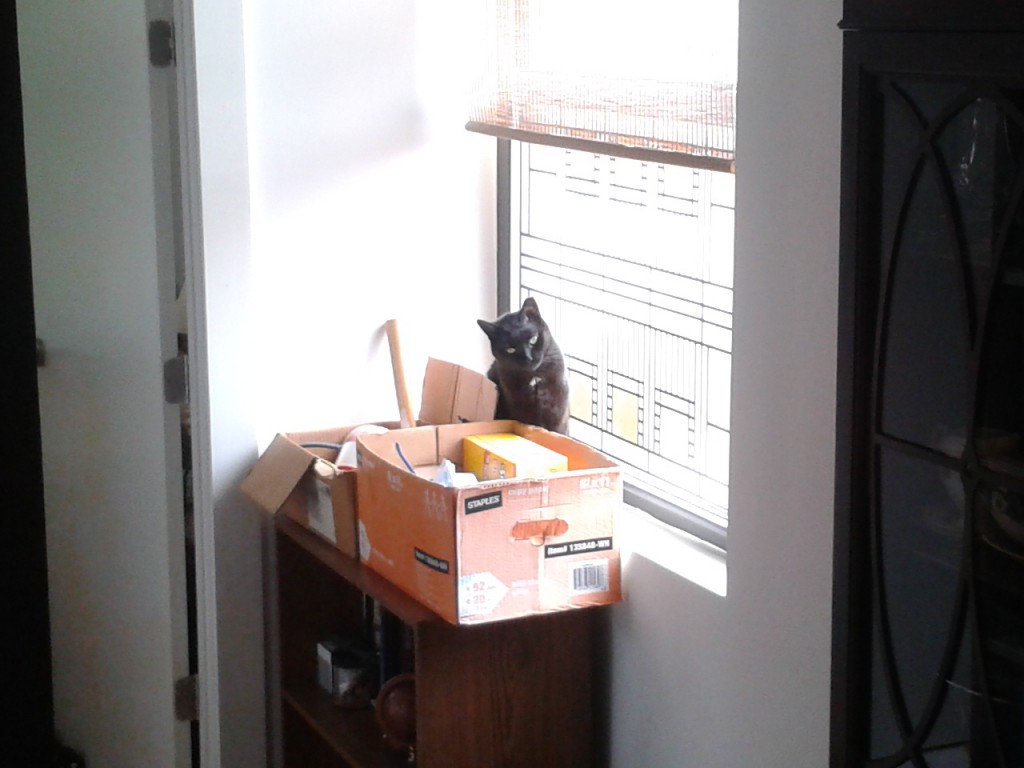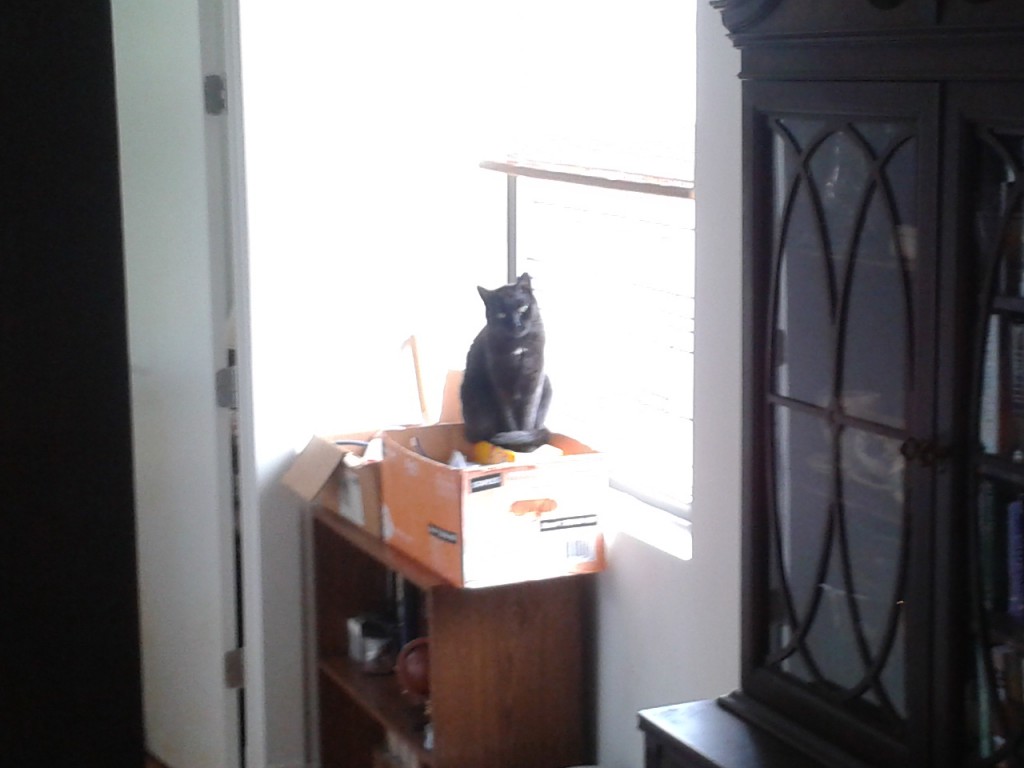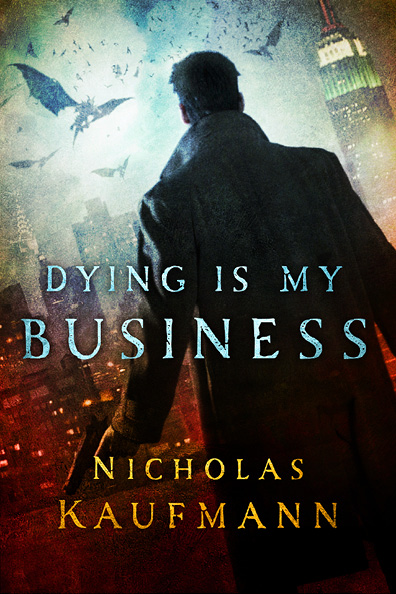After a very disjointed and lackluster season, Doctor Who sprints to the finish line with a superb example of what the show can do now that it’s been freed from the narrative shackles of the Amy-Rory-River arc: the Season 7 climax “The Name of the Doctor.” Let’s dive in, shall we?
MAJOR SPOILERS FOLLOW! BE WARNED!
I think what I liked especially about this episode is that it had stakes. For the past two seasons, there haven’t been any real stakes involved to the season enders. In Season 5, a crack in time and space is going to destroy the entire universe, but that’s okay because the Doctor can just reboot the universe. In Season 6, the Doctor has to die or all of time and space will get messed up, but that’s okay because the Doctor can fake his death with a robot and apparently that will satisfy all the cosmic demands of his death. In “The Name of the Doctor,” at least, characters wind up using their smarts and their abilities to defeat the bad guys and save the Doctor’s life. There’s no “trick” here, no sneaky way out. There are stakes, and those stakes are real, and they are overcome through the actions of the characters. More of that, please.
It was an interesting choice to make the Great Intelligence this season’s big bad. The Great Intelligence is hardly one of the more popular monsters of the classic series, having appeared only twice, both times during Patrick Troughton’s run as the Second Doctor, and not having an iconic physical appearance to draw upon. There are some drawbacks to this choice, too. The Great Intelligence only appeared this season in the Christmas special “The Snowmen” and in “The Bells of St. John.” In both episodes, the Great Intelligence is defeated by the Doctor, but it hardly seems like enough to drive this disembodied entity to launch the vengeful plan that brings everyone to far-future Trenzalore. Granted, the Doctor did defeat the Great Intelligence two more times, but they weren’t in this season. Those episodes — “The Abominable Snowmen” and “The Web of Fear” — were aired more than 40 years ago. So yes, an interesting choice, and maybe not an altogether successful one, but it’s definitely another example of Steven Moffat’s fascination with presenting story arcs out of order. (I get that time travel is involved, but I’d argue there’s a reason recurring characters were always met in order in classic Who. For example, whenever the Doctor crossed paths with the Master, it was always after their last televised encounter. Same with Davros, the Cybermen, etc. It’s just easier to keep track of everything that way.)
What’s also interesting is that even though this is Trenzalore, the events that take place don’t seem to jibe with Dorium’s warning about the planet. He said: “On the fields of Trenzalore, at the fall of the eleventh, when no living creature can speak falsely or fail to answer, a question will be asked, a question that must never, ever be answered. The First Question, the oldest question in the Universe, that must never be answered, hidden in plain sight: Doctor who?” While the Doctor’s name is a plot point in this episode, it is neither revealed upon the Great Intelligence’s asking, nor is there anything about not being able to speak falsely. Online, some have posited that this is what Dorium warned him about, that the “fall of the eleventh” happens when the Doctor cuts the antigrav so the TARDIS will fall to the planet’s surface, and that “silence falls” when the stars start to go out, but I think that’s stretching it. The events Dorium warns about are supposed to bring about the fall of the Silence, that secret society revealed in Season 6, and the Silence has nothing to do with this story. But we do learn that a big battle took place on Trenzalore in which the Doctor died, so it’s possible the battle that’s referenced is the one Dorium warns about. This would make it yet another example of Moffat presenting plot points out of order.
Much to my surprise, considering how overcomplicated and riddled with plot holes Steven Moffat’s grand schemes usually are, the explanation for the multiple Claras works. There’s a lot of science fiction handwaving about how it works — can a timeline actually be a physical doorway? — but it works on a storytelling level. What’s more, it gives us a wonderful, brilliantly nostalgic opportunity to see all the classic Doctors we won’t be seeing in the 50th anniversary special. Well played, Steven Moffat! (That said, some of the CGI was awful. Patrick Troughton might have been the worst, running in his fur coat across a green screen beach at a completely different speed from everyone else.) Most interesting, though, was Clara’s interaction with the First Doctor and Susan. The implication here is that one of the Claras is Gallifreyan, which opens such a can of worms! I mean, did she continue on, regenerating when needed, and eventually die in the Time War? Is Chancellor Flavia’s last name perhaps Oswald? (I kid!) Clara telling the First Doctor which TARDIS to steal was pretty awesome, but it seems to nullify the idea that the TARDIS chose the Doctor as much as he chose it, which would be a sad loss to the mythology.
This episode also nicely wraps up the River Song storyline, should they decide to end it. This is, after all, the post-Library River, and she and the Doctor get a wonderful, no-holds-barred goodbye scene. That said, I suspect River has at least one story left in her, which would be Dorium’s Trenzalore prediction, most likely the moment when she learns the Doctor’s real name.
And then there’s John Hurt. Aside from the Doctor explaining that John Hurt is him but not the Doctor and then having the onscreen titles introduce him as “the Doctor” in direct contradiction to what the Doctor just said, his presence in that strange, hard-even-for-the-script-to-explain cavern that is also the Doctor’s timeline is absolutely thrilling. Even with only two lines of dialogue and a single action (turning around), Hurt shows what an incredible actor he is. His presence in the 50th anniversary special has been confirmed, and I can’t wait to see what they do with him.
The Internet is abuzz with rumors about who he is. Most prevalent is the idea that he’s a “forgotten” or “repressed” incarnation, the one who actually pulled the trigger that ended the Time War. Which would make Eccleston really the Tenth Doctor, Tennant the Eleventh, and Smith the Twelfth. This seems rather overcomplicated and I’m not sure what the point of it would be — which means it’s right up Steven Moffat’s alley and so it’s probably true!
By the way, how cool would it be if they went back to the scene in “The God Complex” where the Doctor opens the door to the room of his greatest fear and we see now that it’s John Hurt?
“The Name of the Doctor” doesn’t wrap up everything, though. For instance, we still don’t know why the TARDIS doesn’t like Clara. We also don’t know why the Doctor is removing himself from databases across the universe, or what he hopes to achieve with that. Season 8 has been given the green light, so hopefully we’ll find out then. Or maybe in the 50th anniversary special.
And now for some Doctor Who neepery! I cannot believe the Great Intelligence name-checked the Valeyard! Fans of classic Who all over the world probably roared with laughter at that moment. So, if you’re not one, you might be wondering why. Well, once upon a time, during Colin Baker’s run as the Sixth Doctor, there was a season-long arc called “The Trial of a Time Lord.” Most classic Who fans don’t like to talk about it, and for good reason. It’s pretty dreadful. Essentially, the Doctor is put on trial by the Time Lords (again!) for all his meddling. Prosecuting the Doctor is a shady character called the Valeyard, played by the very creepy Michael Jayston in an all-black Time Lord outfit that practically screams “Villain!” And indeed, he is the villain of the story. What’s more, his true identity is revealed by the Master as…get ready for this…no, really…oh, crap, here, just have the actual dialogue: “There is some evil in all of us, Doctor, even you. The Valeyard is an amalgamation of the darker sides of your nature, somewhere between your twelfth and final incarnation.” That’s right, the Valeyard plans to have the Doctor (himself) executed so he can steal his (own) remaining regenerations, because apparently you can do that. Ultimately, the Valeyard is one of the worst creations of one of the worst eras of classic Doctor Who, and fans everywhere would rather forget all about it. Thanks for reminding us, Steven Moffat. Just for that, you’re sentenced to a glassful Mel’s carrot juice! (Don’t ask.)




